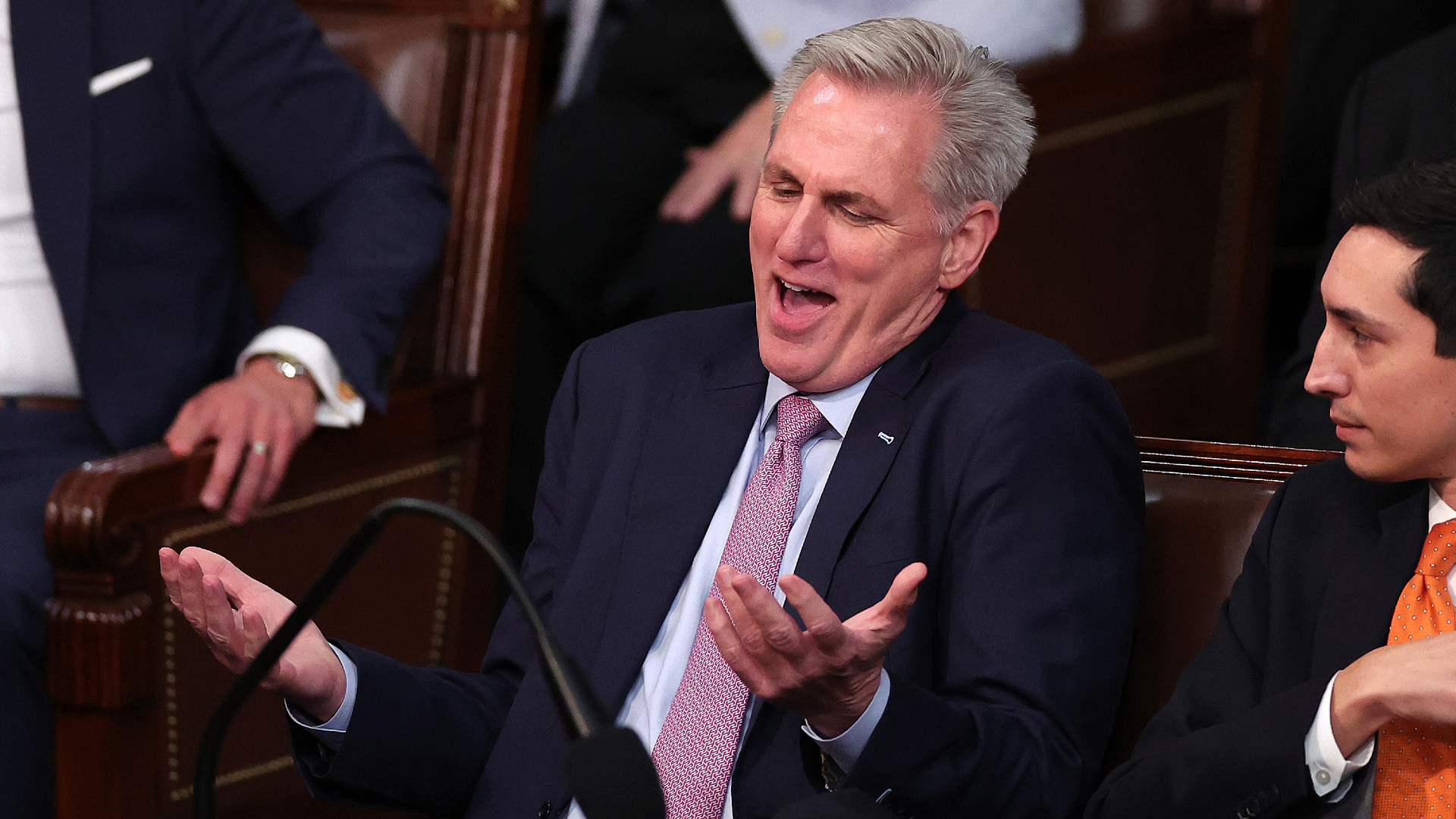Kevin McCarthy Becomes Speaker of the House of Chaos

Following days of intra-Republican contention, 14 rounds of failed voting, and a blocked physical altercation on the chamber floor, Kevin McCarthy (R-CA) became the 55th person to be elected as Speaker of the House of the United States on Saturday morning.
In a late-night vote that ended after 12:30 am in Washington, McCarthy triumphed after receiving 216 votes. It was the first time since 1923 that a Speaker failed to win on the first ballot. Democratic Min. Leader Hakeem Jeffries received 212.
No one else received votes. Six Republicans who had opposed McCarthy in other rounds voted “present.” Under House rules, members voting present are not counted for or against motions.
McCarthy’s victory in the 15th round was a dramatic contrast to the chaos that characterized the 14th round in which he failed to attain a majority of voting members by a single vote after Rep. Matt Gaetz (R-FL) departed the House floor and then returned to cast a “present” vote, prompting Rep. Mike Rogers (R-AL) to approach Gaetz in what some members seemed to interpret as a physical threat. Rep. Richard Hudson (R-NC) restrained Rogers.
Gaetz’s last-minute jab at McCarthy was not just an intra-partisan rebuke of the Californian’s confident prediction of victory ahead of the 14th vote, it will likely be a sign of things to come in the 118th Congress.
While McCarthy will enjoy the official title of Speaker of the House, he takes office under severe restrictions which he accepted in order to placate his extremist members that are certain to put him into immediate conflict with the Democratic-controlled Senate.
“I think he’s more ceremonial than functional, unfortunately,” Rep. Raúl Grijalva (D-AZ) told TYT. “And McCarthy allowed himself to be put that way.”
All but one of the Republicans who initially opposed McCarthy are members of the “Freedom Caucus,” a virulently anti-government group of members who are known for their Christian supremacist viewpoints. Some, such as Rep. Paul Gosar (R-AZ), have worked closely with racist groups.
The concessions McCarthy made to the far-right are a mixture of procedural and policy changes, all of which will weaken his power to determine what legislation makes it to the floor. McCarthy spent days giving into his objectors’ increasing demands, including a formal provision that any attempt to increase the federal government’s debt ceiling be automatically paired with mandatory cuts to federal spending. McCarthy also promised that he would fix all 2023 federal spending at 2022 levels, effectively meaning these programs would be reduced in size given inflation. Neither provision is likely to be accepted by Senate Democrats or by President Joe Biden.
Other concessions won by the far-right members include giving any representative the ability to file a “motion to vacate the chair,” which would subject McCarthy to an immediate removal vote.
McCarthy’s victory in 2023 was a very different outcome from his 2015 attempt to become Speaker which failed after Freedom Caucus members blocked him from succeeding former Rep. John Boehner, who had resigned under pressure from the far-right group.
Despite the chaos that will almost certainly soon envelope his speakership, McCarthy basked in the glow of his victory after the tally was announced.
“That was easy,” McCarthy joked as he took the Speaker’s gavel for the first time. “I never thought we’d get here.”
President Joe Biden saluted McCarthy on his victory.
“Jill and I congratulate Kevin McCarthy on his election as Speaker of the House,” he said in a statement. “The American people expect their leaders to govern in a way that puts their needs above all else, and that is what we need to do now.”
TYT National Correspondent Matthew Sheffield reports about politics, media, and technology. You can follow him on Twitter or on Mastodon.
TYT Washington Correspondent Candice Cole was previously a correspondent and senior White House producer for the Black News Channel and has worked at a number of local news outlets. You can find her on Twitter @CandiceColeNews.
